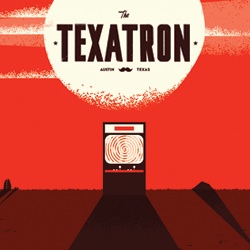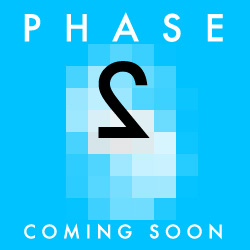EDGE OF MADNESS: THE COPYFIGHT BETWEEN MOBIGAME AND TIM LANGDELL
Apologies for the title, as this actually refers to a trademark dispute, but I can’t think of a short-form pun that works as well (trade-lark?). Either way, there needs to be a brighter light shone on this ongoing struggle that’s been waging since the tail end of May, but has gone too overlooked due both to E3 information overload, and the long interim process of gathering all the relevant information, which now has finally come to a head.
Rather than guiding you through the sordid details in their entirety, I point you instead to fantastic summaries recently written up by both Gamasutra director Simon Carless, and Derek Yu at TIGSource — the latter’s community has been doing staggering due diligence at sniffing out the facts over the past few weeks.
But here’s the long and the short: iPhone game creators Mobigame — the French studio behind retro-future cubist platformer Edge have been locked in an ongoing battle with one Tim Langdell, trademark owner of the word ‘Edge’ since his early 80s home computer publishing house Edge Games was in operation, who has since been vociferously defending the mark at all opportunities, when clear common sense would dictate that there’d be laughably little dilution with his sparse output since the days of the ZX Spectrum and Commodore 64.
A short list of the companies that have apparently settled with Langdell and licensed the name or otherwise stepped out of his way include UK magazine Edge, Namco — whose Soul Edge game would be released in the west as Soul Blade, 1997 Anthony Hopkins movie The Edge, Malibu comics character Edge and any Marvel comic with the word in the title… the list goes on, but out of all the heavy hitters that have conceded, Langdell has finally met his angriest and noisiest match in the one place he probably least expected it: the indie game community. Langdell has, of course, maintained his right to the mark, and has further claimed that Mobigame has undertaken what amounts to a PR war against him, but since that late May day, the facts have been piling up against him. Chief, in my mind, is the allegation by Mobigame that after informing Langdell that they’d be happy to withdraw any claims and change the name of their game to Edgy, Langdell immediately filed a new trademark on exactly that name (and the name does appear in the trademark database, filed some days before the App Store removal).
Digging through Langdell’s various websites (which over the past few weeks have been in a state of flux as the TIGSource community brings new details to light) also brings truckloads of what can only be deliberately obfuscating details: Langdell’s company lists as forthcoming a game for PC, Xbox 360, PS3, Wii, PSP, DS and iPhone (a remarkable achievement of crossplatform coordination) called Mirrors, which, as above, was originally marked on the site as “Mirrors a new game from Edge” — surely not at all an attempt to goad Electronic Arts/DICE into a legal battle over their own Mirror’s Edge, as surely not as his moves to trademark Mirrors Spore and Soul Spore in the UK (search yourself) at roughly the same time he filed his Edgy claim.
I’ll openly admit that I have been doing nothing but impassively watching this entire ordeal unfold, from the time Carless first caught wind of the dispute and wrote his original article — briefly removed, under perceived legal threat from Langdell.
There was even a time where some of the angriest comments churning through the TIGSource forum thread on the debacle had me wondering if Langdell was a victim of a massively overblown misunderstanding, and if the quirkiness of his attempts to extend the Edge mark even into offering sub-orbital space flights lent him some demented charm.
But having read now the full accounts from Mobigame and associates, and earlier accounts from other developers when Edge Games was actively publishing games, and even Langdell’s own defenses in various other comment threads calling for his removal from the International Game Developers Association, it’s becoming increasingly clear that there is full-on bullying at work here, and it’s not from Mobi’s attempts to simply keep their iPhone platformer on the market.
See more posts about: Offworld Originals






